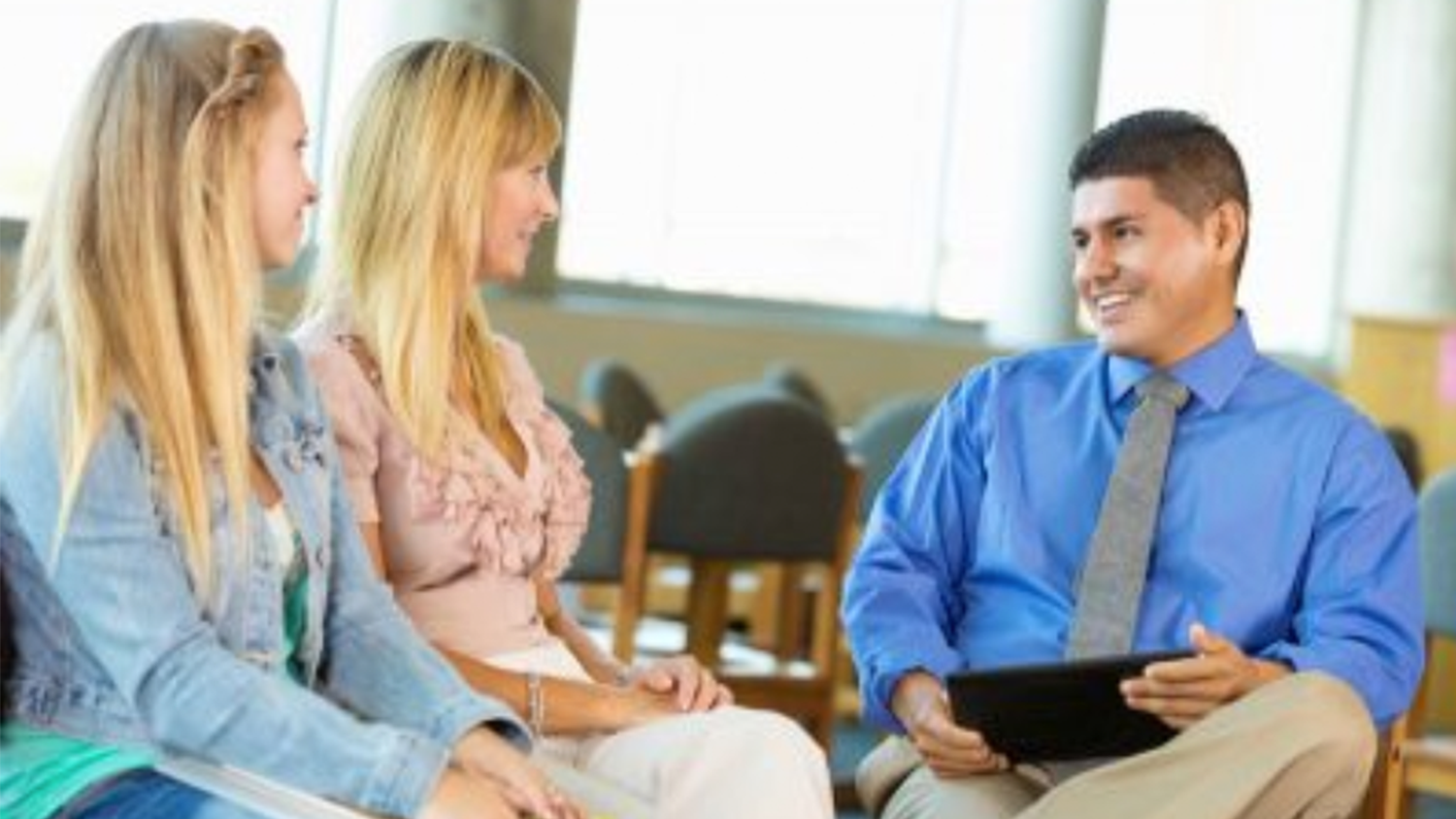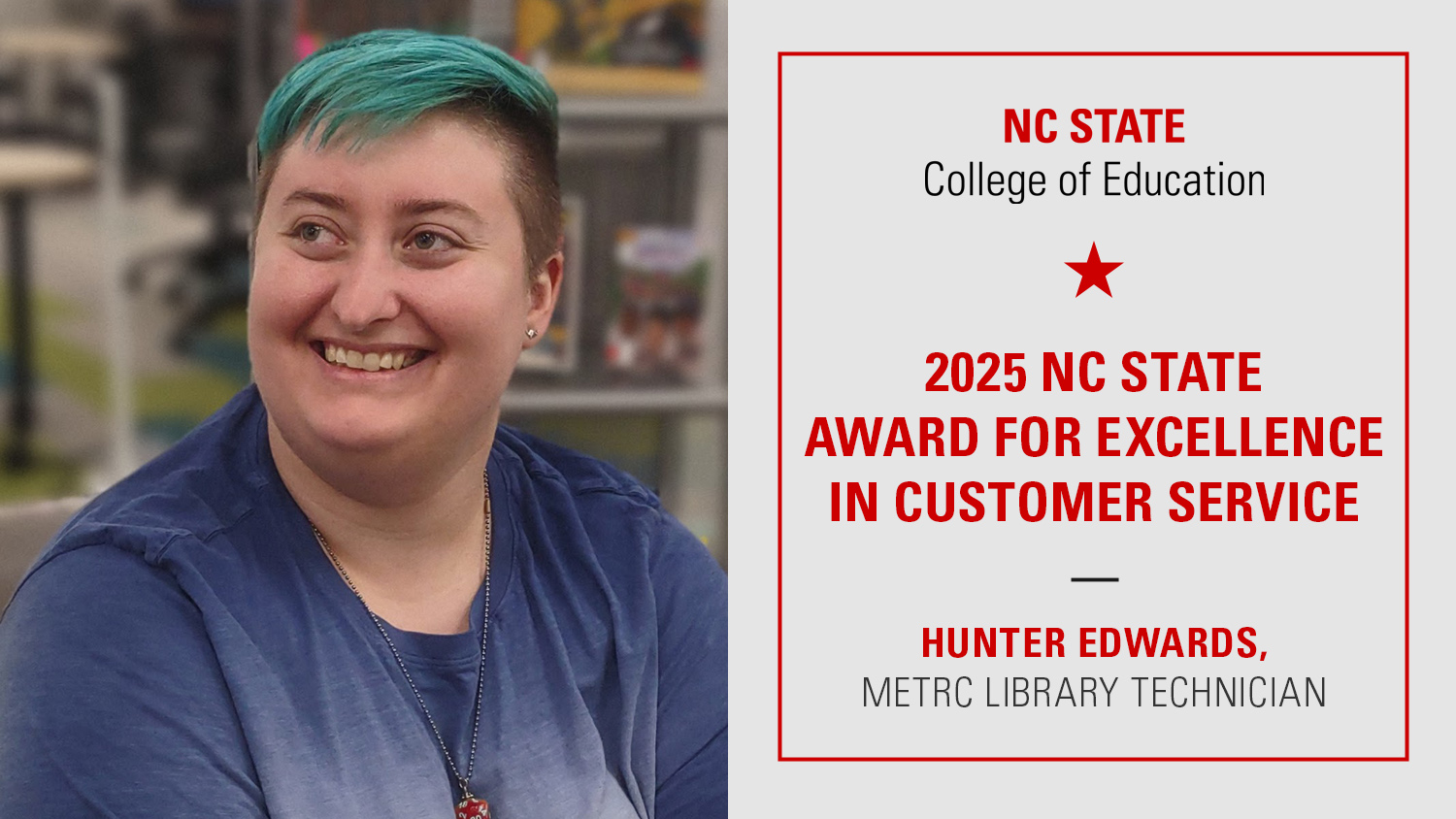Clinical Mental Health Counseling Students Share Common Mental Health Struggles of COVID-19, Tips for Coping

As people around the world stay home and continue to practice social distancing measures to stop the spread of the coronavirus (COVID-19), some are finding that the isolation and lack of structure are taking a toll on their mental health.
The Community Counseling, Education, and Research Center (CCERC) at NC State has transitioned to distance counseling using video software to continue serving clients. Brent Michel ‘21MED, a clinical mental health counseling student at the NC State College of Education completing a practicum at CCERC, and Jenny Deschler ‘20MED, a student in the same program completing her internship at CCERC, are among those who are offering support from home.
Under the supervision of Associate Professor Marc Grimmett, Ph.D., and Teaching Assistant Professor Helen Lupton-Smith, Ph.D., Michel and Deschler shared some of the biggest issues they’ve seen people struggle with since COVID-19 began and offer tips for coping.
Common Struggles During the COVID-19 Pandemic
Struggling with the interruption of plans and goals: For many people, the coronavirus pandemic and resulting closures of businesses have put a hold on their plans to find jobs, seek promotions or become financially stable. “The uncertainty regarding when life can return to some semblance of normality makes it even more difficult to plan and structure one’s life within the confines of COVID-19,” Michel said.
Families can become strained: Families are now dealing with children who are home from school and must juggle childcare with a need to work from home. This, plus the additional emotional and financial stresses surrounding COVID-19, have placed an additional strain on many relationships, Michel said. In addition, elderly people, many of whom already struggled with feelings of loneliness, are becoming even more socially isolated, as friends and family can no longer visit.
Feelings of hopelessness: Many people are feeling helpless in the current climate, as the virus is not something they can fight back against and its course remains unknown. In addition, the rapid reduction in autonomy and freedom is a challenge that leaves many struggling to adapt and find meaning in their everyday lives, Michel said.
Questioning relationships: As students are no longer able to see their friends in the same physical location every day, many are questioning the authenticity of these relationships as they and their friends must put in extra effort to stay connected. This situation is exacerbated, Deschler said, when one person feels they are putting more effort into the maintenance of a friendship than the other person in the relationship.
Being alone with your thoughts: The slow-down in daily routine and increase in free time for some is giving some people more time for personal reflection, which can be both a good and bad thing, Deschler said. “They are finding more time to be with their thoughts, which for some can be insightful and revealing. For others, this is activating and causing them to relive painful memories long-suppressed.”
Tips for Maintaining Positive Mental Health During COVID-19
“FACE COVID:” CCERC recommends that counselors and clients follow “FACE COVID,” a set of practical steps developed by Dr. Russ Harris to respond to the crisis using principles of acceptance and commitment therapy. The FACE acronym stands for
- Focus on what’s in your control,
- Acknowledge your thoughts and feelings,
- Come back into your body and
- Engage in what you’re doing.
The COVID acronym stands for
- Committed action,
- Opening up,
- Values,
- Identify resources and
- Disinfect and distance.
Remember the difference between physical distance and social distancing: Although “social distancing” has become a commonly used term during the coronavirus outbreak, Michel notes that people can remain socially active while staying physically apart from friends and family. Counselors should ask their clients how they are staying connected to others, particularly for clients who were already lonely or socially withdrawn, and suggest they participate in activities like “virtual happy hours” or other similar online gatherings. “Connect with others via text, call or video-chat. Social connection is all the more important during a time of crisis, since we find great comfort and shared meaning via our social network.”
Maintain a consistent schedule: With many businesses closed and unemployment on the rise, many people no longer have to go to bed or wake up at set times, disrupting their normal sleep schedule. As a result of this, as well as stress and anxiety about issues surrounding the pandemic, Deschler noted that she has spoken to many clients struggling with sleep difficulties. It is important to maintain a regular sleep schedule, Deschler said, as the amount of sleep a person gets can impact their level of energy motivation. People should also try to keep a set schedule for meals and separate work or school time from leisure time at home, Michel said.
Find a purpose: Many have expressed a lack of motivation to complete their normal tasks, like schoolwork, from home. This lack of motivation can manifest in feelings of personal shame and leave a person questioning their purpose. Rather than focus on their role as a student, Deschler helps clients focus on things like their creativity, resourcefulness, their pets or the beauty of nature. “I feel it is critical we as counselors help remind our clients their lives do have purpose and contain meaning, even if these areas are nebulous amid crisis.”
Turn off the news and go outside: Michel recommends that people pay attention to the amount of news they are consuming about COVID-19 and keep track of how that news is impacting their mental health. He recommends getting away from TV and computer screens and spending some time outside, if clients have access to a space where it’s possible to do so while maintaining adequate distance from others.
- Categories:


